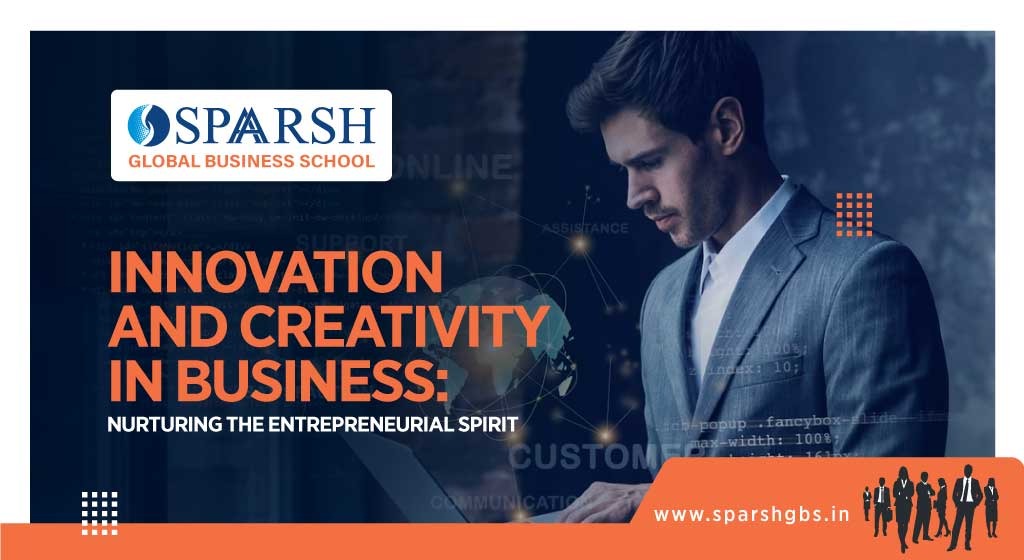Just think about what life would be like if entrepreneurs like Reed Hastings, Mark Zuckerberg and Warren Buffett didn't exist. Imagine a world where brilliant ideas die out before they ever get off the ground and where technologies that could change the world never get off the ground. Their innovative spirit has, thankfully, cleared the path for other would-be business owners to emerge from the mundane and create history.
But what does it take for these entrepreneurial endeavours to take off and find success? A key component, leadership, holds the key to the solution. Great leaders are like experienced pilots; they guide their teams through difficult moments, making sure they reach their destination safely and soundly. In a world where possibilities are everywhere and innovation is happening at an incredible rate, top ranking PGDM colleges in India are encouraging entrepreneurship in their learners.
Learners today have the potential to make a difference in the world. PGDM institutes in India are inspiring them to become entrepreneurs we can tap into for a reservoir of innovative ideas, resourceful individuals and agents of positive change.
Entrepreneurial ideas are cultivated by business schools in Delhi, NCR, providing concepts and practical examples which will encourage learners to take on their entrepreneurial path.
Celebrating Originality and Progress:
Attributes of an entrepreneurial mindset is imbibed in our learners by empowering them with tools to enable entrepreneurship in work and life. This includes risk appetite, orientation to experiment and innovate, being solution-minded, identifying opportunities and in creating empathetic change-makers of tomorrow.
The owner and CEO of Airbnb, Brian Chesky, is a young entrepreneur who changed an industry. In 2007, Chesky, Gebbia, and Blecharczyk struggled to pay rent in San Francisco. They noticed potential in the city's lack of affordable lodging at a design conference. Renting air mattresses in their living room and breakfast for conference attendees was a novel idea. Airbnb, a platform for renting houses and rooms to travellers, grew from this idea. An idea became a global phenomenon thanks to Chesky's creativity and determination. Airbnb has rocked the hotel business with millions of listings globally. Airbnb is a prominent player in the travel and hospitality business because Chesky identified a common need (cheap and distinctive housing) and solved it through a peer-to-peer network.
Decisions and Risks:
Making decisions and taking risks are emphasised as crucial components of the programme in PGDM institutes in India. As they learn to navigate the ever-changing and unpredictable corporate world, aspiring leaders are encouraged to take measured risks and act swiftly to advance their initiatives. Here, you'll weigh the benefits and risks of a course of action and when called upon, take calculated risks. As part of their data science course in India, leaders in successful businesses learn the importance of taking chances in order to seize opportunities and stay ahead of the competition.
These future leaders may decide to put money into R&D as part of their schooling, investigating unexplored markets, or working on new products. The curriculum's overarching goal is to develop entrepreneurial leaders with the skills necessary to foster innovation, gain a competitive edge for their companies and make informed decisions while accepting risk.
Flexibility and Strength:
Aspiring leaders are encouraged to be resilient and adaptable within the framework of an entrepreneurial leadership curriculum at a business school in Delhi, NCR. The instructional strategy stresses the need for learners to develop resilience and an openness to new ideas in light of the undeniable reality that the corporate world is dynamic and unpredictable. Future leaders are taught to see challenges as chances for progress and to skilfully adapt their strategy and plans accordingly.
For example, in the event of a crisis, students are taught to quickly adapt their business models to suit changing customer demands. Equally important is resilience, defined here as the ability to recover quickly from adversity and inspire one's teammates to do the same. Learners can inspire and lead their teams through hurdles by actively exhibiting flexibility and resilience, building a culture of determination and skilful navigation through barriers, resulting in their enterprises' success.
Conclusion:
Having its roots in corporate experience, top-ranking PGDM colleges in India have the objective to cultivate an entrepreneurial mindset whereby learners develop future orientation, critical thinking and problem-solving skills through innovation and creativity, be adept at spotting opportunities and taking initiatives, be flexible, adaptive and open to collaboration, apart from being self-reliant and a reasonable risk-taker.
Attributes of an entrepreneurial mindset are imbibed in learners of Sparsh Global Business School by empowering them with tools to enable entrepreneurship in work and life. SGBS is also a pioneer in providing a full-fledged entrepreneurship lab called Sparsh Combinator. Seed capital will be made available to all postgraduate students so that they can experiment with starting a business. This includes risk appetite, an orientation to experiment and innovate, being solution-minded and in identifying opportunities and creating empathetic changemakers for tomorrow. The future of entrepreneurship is as exciting as it is challenging and in this, new-age business schools of today offer the right kind of launchpad for careers in entrepreneurship to soar to great heights.
FAQ’S
1. How can learners develop entrepreneurial traits and what instruments promote entrepreneurship in business and life?
Learners learn risk-taking, experimentation, problem-solving, and empathy. PGDM colleges equip students to be creative change-makers for the fast-paced workplace.
2. What role does leadership play in encouraging entrepreneurship in top Indian PGDM colleges?
Leadership helps budding entrepreneurs overcome obstacles and achieve their goals securely, while effectively mentoring their team to achieve a common goal. Experienced leaders’ mentor PGDM students to empower them to make a difference in society.
3. How do Indian PGDM programmes emphasise decision-making and risk-taking?
PGDM programmes imbibe in their courses, through their industry exposure and other hands-on projects, the traits of risk-taking and decision-making. Aspiring leaders should act quickly, take calculated risks and make informed decisions. The curriculum trains learners to imbibe in them the entrepreneurial spirit to create their own career paths and follow their passions.



